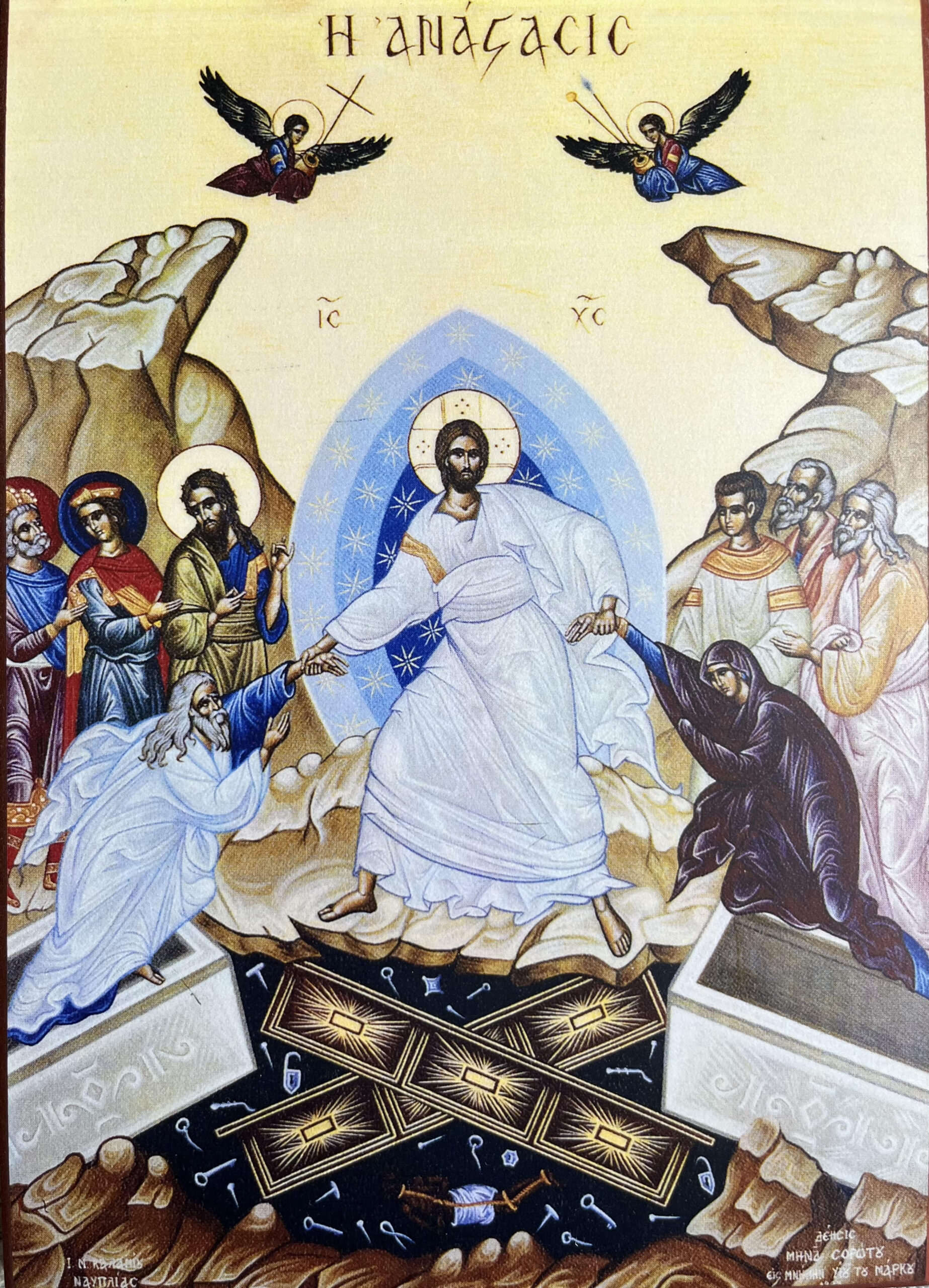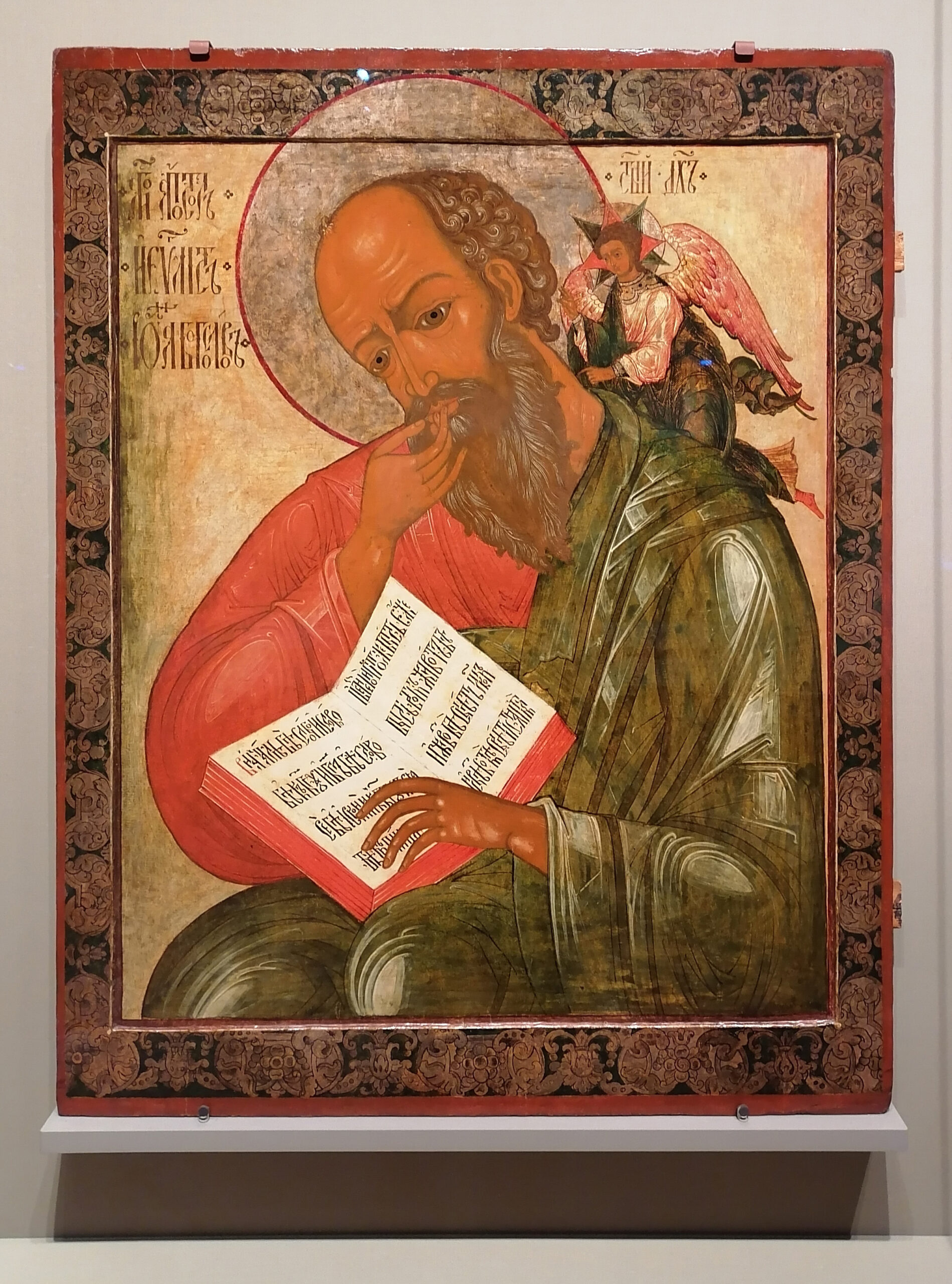When I ponder in my wretchedness on the many terrible things I have done, I tremble for that fearful day, the Day of Judgment. But trusting in the mercy of Your compassion, like David I cry to You, “Have mercy on me, O God, according to Your great mercy.”
~Idiomelon from Sunday Orthros, Triodion (Trans. by Fr. Seraphim Dedes)
—
Have mercy on me, O God, according to Thy steadfast love; according to Thy abundance mercy blot out my transgressions. . .Create in me a clean heart, O God, and put a new and right spirit within me. . .Restore to me the joy of Thy salvation, and uphold me with a willing spirit.
Psalm 51:1, 10, 12
This reflection will focus on the third of the three hymns that are sung each Sunday of the Triodion during Orthros. David is one of the most prominent figures in the Old Testament. He was a warrior, a king, and the line between Abraham and Jesus goes through him. In fact, Jesus was born in Bethlehem, the city of David. David wrote most of the Psalms. David was also an adulterer and murderer. The story of David shows that God can still work through our brokenness.
David came to a place in his life where he realized his brokenness. He realized that only God could heal his brokenness. And so he wrote most of the Psalms, including Psalm 51, which is quoted above. He recognized that he needed God’s mercies and that only God could create a clean heart in him, renew his spirit and restore joy to him.
The hymn we are reflecting on today references the Day of Judgment. This is described in Matthew 25: 31-46, where the Lord will gather all the peoples of all the nations and separate them, as sheep and as goats. The sheep will be on the right hand, the goats on the left. The sheep will enter paradise and the goats will go to hell. And each will be assigned his or her respective place based on six standards—feeding the hungry, giving drink to the thirsty, clothing the naked, welcoming the stranger, visiting the sick, and visiting those in prison.
Now, these things can be extended to other needs. A prison is not only a prison of bars. For instance, someone could be in a prison of poverty, or a prison of loneliness. Let’s look at how we handle people in “prisons” of loneliness. Rather than “visit” them, we imprison them more severely by gossiping about them. The Lord tells us that when we do or don’t do for someone, it is as if we are doing or not doing for him. Imagine if He said,
“I was hungry to trust someone and you betrayed my trust.”
“I was thirsty for a social group and you killed me with gossip.”
“I was a stranger and you couldn’t leave your friend group to say hello.”
“I was naked from lack of self-esteem and you piled on.”
“I was sick from my life circumstances and you showed me no empathy.”
“I was in a prison of doubt and you crushed my self-confidence.”
We have all done all of these things many times. And if we allow ourselves to reflect soberly on our lives, we will feel the “wretchedness” described in this hymn for the “many terrible things” we have done, and should rightly “tremble for that fearful day, the Day of Judgment.”
The hymn has a hopeful ending, encouraging us that God still has compassion and mercy, and not only that, we can trust in His mercy and compassion. However, we must cry out like David, asking for God’s mercies, and then living a life of repentance that supports this cry for mercy.
Christ has been described as the “merciful judge.” We know that He will judge each of us. We know that His mercy is abundant. How those two play off each other—how judging is He versus how merciful—we do not know. We know that we will stand before Him in judgment. We know that we will all be deserving of punishment. And we know that the only way that we will be counted with the sheep and not with the goats is by His mercy.
Let’s put this idea into a context we can understand. Many of us, including me, are burdened by carrying around too much weight. Imagine if we could lose 30 pounds for free, no effort required, if someone just waved a wand and 30 pounds were gone. Would we consider ourselves thankful for the gift and now stay at our new weight, or would we say “woo-hoo”, not I can go eat more? God’s forgiveness in some ways works like this—He loosens the burden of sin and through repentance, we work to not sin in the same way. At least we are supposed to. Repentance is a continual effort, and thankfully forgiveness is a continual gift.
There has to be some recognition of a judgment though. We don’t inherit the kingdom of heaven merely by breathing. There is work involved, and that work is our faith, our good deeds, and our repentance, combined with God’s mercy.
When You come down to the earth, O God, in Your glory, all things will cower tremulous, and a river of fire will draw before Your Judgment Seat; the books shall be opened up, and public knowledge will things hidden be. Rescue me, then, I pray, from unquenchable fire, and count me worthy to stand at Your right hand, O You, the most righteous judge. (Kontakion, Sunday of the Last Judgment, Trans. by Fr. Seraphim Dedes)
The Christian life should be a balance of trembling for the judgment and trusting in the mercy of God, and for every sin, there should be an effort to repent. Because sin is ongoing in each human life, repentance should be ongoing as well.

